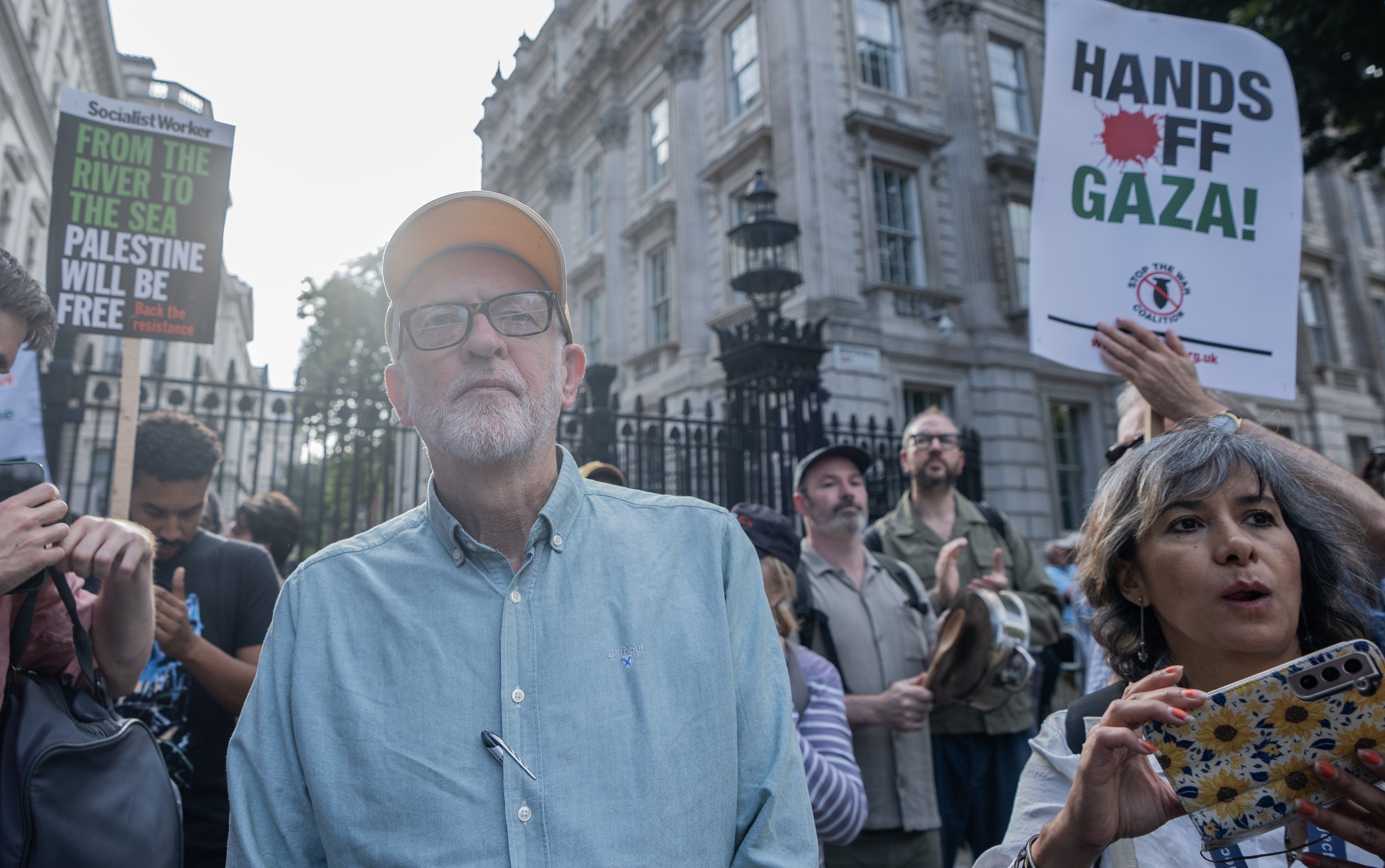The rise of public support for the populist right, and in some cases also the populist left, has remodeled political competition in France, Germany, Italy, and Poland.
British politics is increasingly following this trend, although a general election is not due until 2029. The right populist Reform UK party, led by veteran Brexiteer Nigel Farage, has been leading in opinion polls since April, clearly sapping the remaining strength of Britain’s venerable Conservative (Tory) Party. The unpopular Labour administration of Prime Minister Keir Starmer now faces a left populist challenge from a new party led by the former Labour leader, Jeremy Corbyn.
Farage’s Reform party has surged to first place in opinion polls with 31%, well ahead of the governing Labour Party at 21%. The Conservative Party, which ruled continuously from 2010 to 2024, trails at a miserable 17% voter support. Both establishment parties have been on a downward trajectory since the 2024 elections. Corbyn’s party is in its early phase of organization, with a founding conference planned for later this year.
As in the other cases in Europe where populist parties are on the rise, defense policy and coolness toward unconditional support for Ukraine are not the main drivers of Reform’s success nor of Corbyn’s aspirations. Reform UK wins support by decrying irregular migration, while the Corbyn left emphasizes inequality, inadequate social services, and a weak economy. Polls show “immigration and asylum” as leading public concerns, while defense and security hardly register by comparison.
The populists’ dissent from the mainstream on the war in Ukraine and on foreign policy more generally would presumably matter if and when these parties win a share of power.
Why the populist challenge matters for war and peace
Both populist right and populist left across Europe tend to prioritize domestic social and economic issues, but they differ radically on irregular immigration and on the impacts of ethnic and linguistic diversity. Both tend to be Euro-skeptic.
The avowedly nationalist Reform UK depicts the EU as encroaching on the prerogatives of democratically elected national leadership, while the left wing of the Labour Party has also been wary of the EU, which is seen as too wedded to neo-liberal economics. These attitudes helped produce the victory for the “leave” option in the 2016 Brexit referendum. One of the leading advocates of Brexit, Nigel Farage, poses a formidable challenge to the Conservative Party from the right.
The party program of Reform UK does not address foreign policy at all. However, Farage is close to the Trump administration and has said that NATO expansion contributed importantly to Russia’s decision to invade Ukraine. Returning from a visit to Mar-a-Lago after Trump’s election last November, Farage called for “concessions on both sides” to end the war in Ukraine.
On July 24, Corbyn and disaffected Labour MP Zarah Sultana announced plans to launch a new left-wing party, with the tentative name YourParty. This excited a surprising level of interest, garnering 600,000 registrations on social media. Initial polls indicate its support could range from 10% to 15% of the electorate.
Corbyn has mobilized protests against Israel’s war in Gaza and advocates a diplomatic solution in Ukraine. He has been closely associated with antiwar causes throughout his career and is a co-founder and leader of the activist network Stop the War, first formed in September 2001 to oppose the looming invasion of Afghanistan, and now very much absorbed in public protests against British support for Israel’s operations in Gaza. Banished by Starmer from Labour, Corbyn is an independent MP.
Corbyn’s party project draws on and courts support from younger voters, as well as from communities of color in Britain. This has close parallels with Jean-Luc Mélenchon’s party La France Insoumise (France Unbowed), as Mélenchon himself has acknowledged.
Can populists affect foreign and defense policy?
Neither Farage nor Corbyn nor their supporters share the dislike and dread of Russia promoted by Britain’s mainstream parties and much of the media. This could be significant if Reform UK and/or Corbyn’s party attract substantial support from the Conservatives and Labour, respectively. A steadily decreasing majority of the population (now only about 53%) supports continuing to arm and finance Ukraine.
Because any success of Corbyn’s party harms Labour, it could inadvertently help Reform UK win the next election, because of the “first past the post” electoral rule. Corbyn insists his party would present stronger opposition to Farage’s party than is being offered by Starmer’s government.
In general, trends point to polarization and the “Europeanization” of Britain’s politics — a splintering of the party system as the center ceases to hold — and more zero-sum contestation in the country’s politics.
The ideal of a united Europe — including the UK — providing support to Ukraine for the indefinite future is very unlikely to be achieved in a more fractured political system in which the anti-establishment right and left exert greater influence.
















